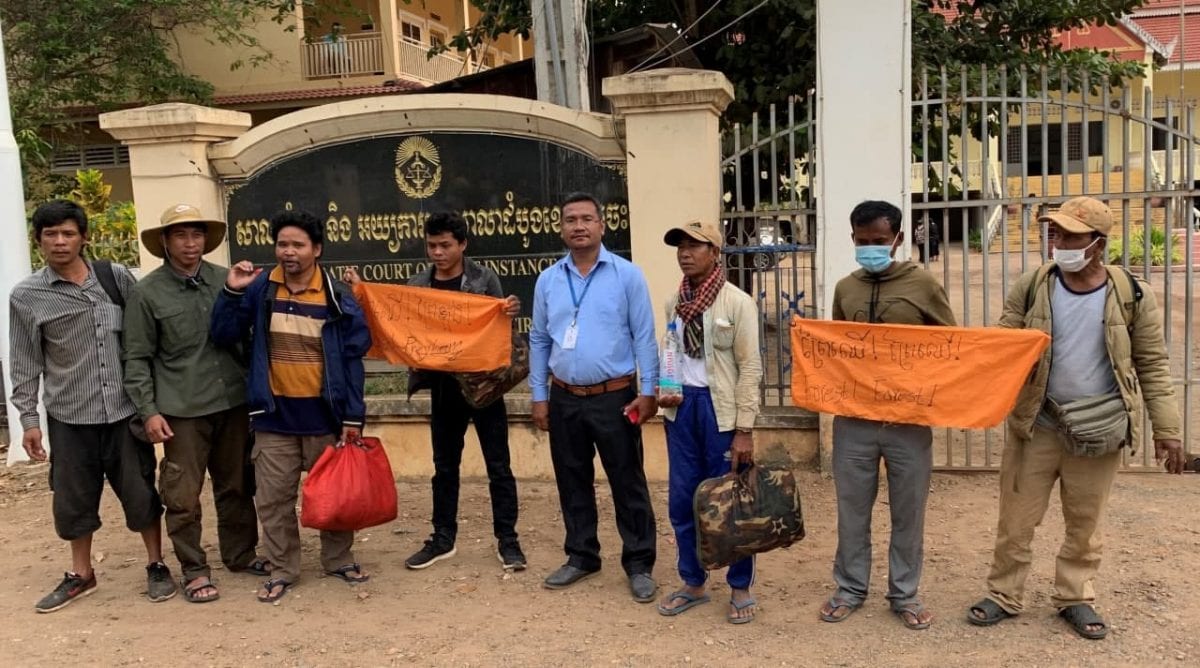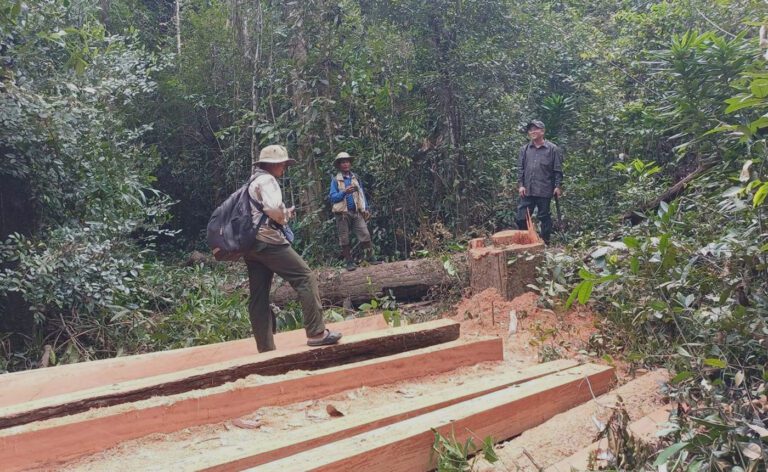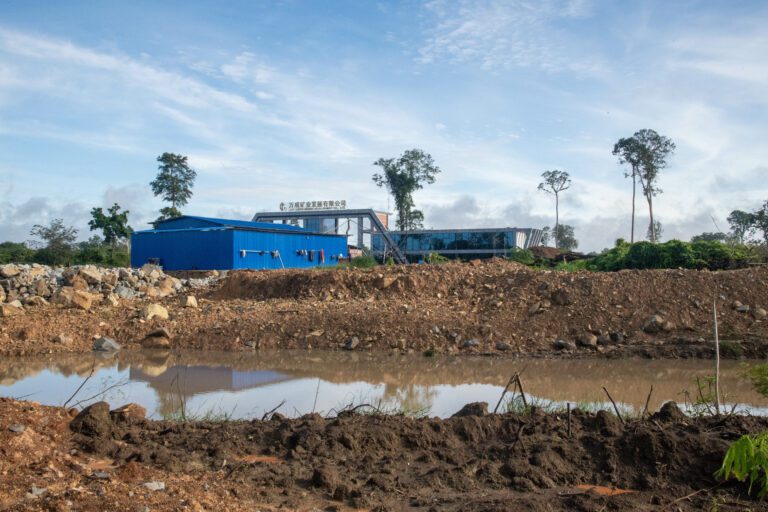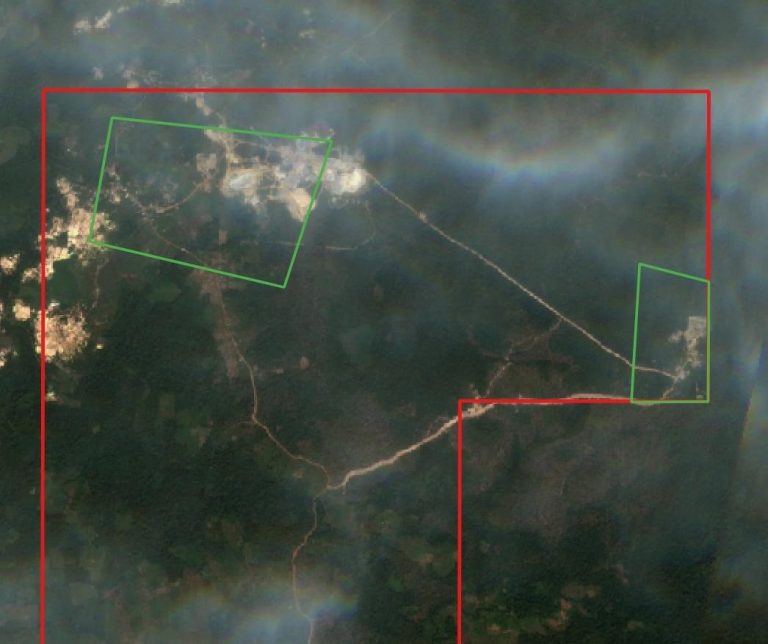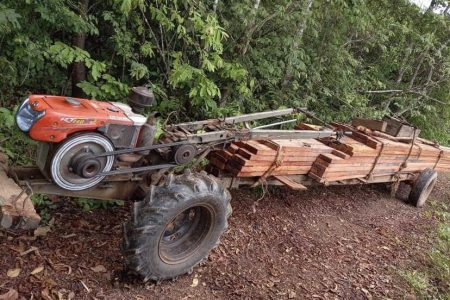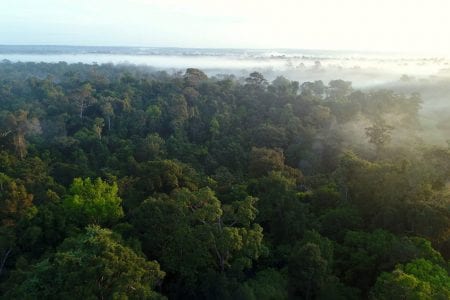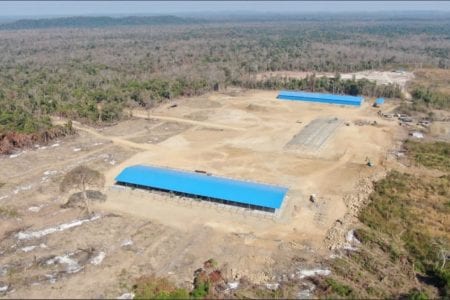Goldman Environmental Prize-winning Ouch Leng and four activists were released by the Kratie Provincial Court Monday morning after being detained on Friday for allegedly entering the Prey Lang Wildlife Sanctuary illegally.
Five environmental activists were detained while putting Buddhist saffron cloths on trees in the sanctuary and posting signs asking people to not cut down the trees. Apart from Leng, Heng Sros, Phay SoPhon, Torng Cheang, and He Run were assisting the environmentalist in Kratie province’s Kampong Cham commune.
They were questioned by the Kratie Provincial Court and released after signing agreements to stop entering the protected forest without permission.
Leng, who is the head of the Cambodia Human Rights Task Force, said they were detained because of his investigations in Think Biotech, a tree plantation right next to Prey Lang, which is accused of illegally cutting the timber from within the forest.
“I think that they arrested me because they want to increase the time to collect felled logs. I didn’t commit any crime,” Leng said.
He said illegal loggers in the forest were the ones who informed security guards and Environment Department officials, who then confiscated the activists’ equipment.
He took umbrage with the government repeated actions to prevent him, and Cambodian citizens, from entering the forest.
“Why can’t the owners of the forest enter the forested areas?” he asked.
He said he would continue his push to document illegal logging, even though he is effectively banned from entering the forest.
His colleague, Heng Sros, said the authorities were only attempting to prevent them from highlighting the cutting of protected forests. While he was in the sanctuary, he saw at least 20 trucks laden with timber.
“I have evidence, pictures and video, to demonstrate that Think Biotech company continues to cut timber from inside the Prey Lang area,” Sros said.
He alleged that Think Biotech employees had alerted the Environment Department to the five activists’ presence in the forest.
“The loggers carry timber, but they are not arrested. But, when activists put one sign in the [protected forest] they are arrested” he said.
Leng and two colleagues were previously detained by Think Biotech security guards in March 2020, again for documenting illegal timber transports from allegedly within the economic land concession. At the time, he was also made to sign an agreement to not enter the forest without prior permission and to register his groups, which he claims is already registered with the Ministry of Interior.
Keo Socheat, a Kratie Provincial Court prosecutor, answered his phone and refused to comment on the arrests, claiming that is phone did not have mobile service. Chhay Duongsavuth, director of the Environment Department, could not be reached for comment.
Environment Ministry Neth Pheaktra said the five activists had admitted to “secretly breaking” into the protected forest, but did not want to comment on the court’s decision to release them.
He said the activists had to provide evidence to support their claims. “Let him show proof and evidence for the Ministry to review and take action,” he said.
Leng has released multiple reports showing rampant deforestation across the country. Leng and other activists, such as the Prey Lang Community Network, have provided satellite imagery to show the destruction of forests, especially Prey Lang.
The Environment Ministry had dismissed these images and claimed it was not proof of widespread and organized forest loss.
Soeng Senkaruna, a senior investigator at rights group ADHOC, who monitored the activists’ detention in Kratie, said the government was choosing to intimidate people whose only intention was to protect the forest – a task they had dedicated their lives to.
“They have not committed an offense but it is the opposite – they have assisted the government in preventing forest crimes,” Senkaruna said.
The government time and again voiced its intention to crack down on the illegal timber trade, but continued to punish activists who were attempting to do the same, said Chak Sopheap, the executive director of the Cambodian Center for Human Rights.
“The government should be reminded that activists – such as those who were recently arrested – act as a last line of defense, attempting to protect the land and resources that the government has failed to protect,” she said.
She said the Law on Protected Areas was intended to encourage the protection of Cambodia’s natural resources, and not to penalize environmental activists, whose work was in line with the law.
The Prey Lang Wildlife Sanctuary is the fastest disappearing forests in Cambodia. The sanctuary lost the most canopy loss in 2016, which was the same year it was designated a protected area.
In January, a European Commission report showed a resurgence in deforestation at the Prey Lang Wildlife Sanctuary. The report found that canopy loss started increasing in 2013 and peaked in 2016 when 9,836 hectares of forest were lost.
While the loss of forest cover dropped in 2017, the report showed that has been steadily increasing and that 4,230 hectares were lost in 2019.


